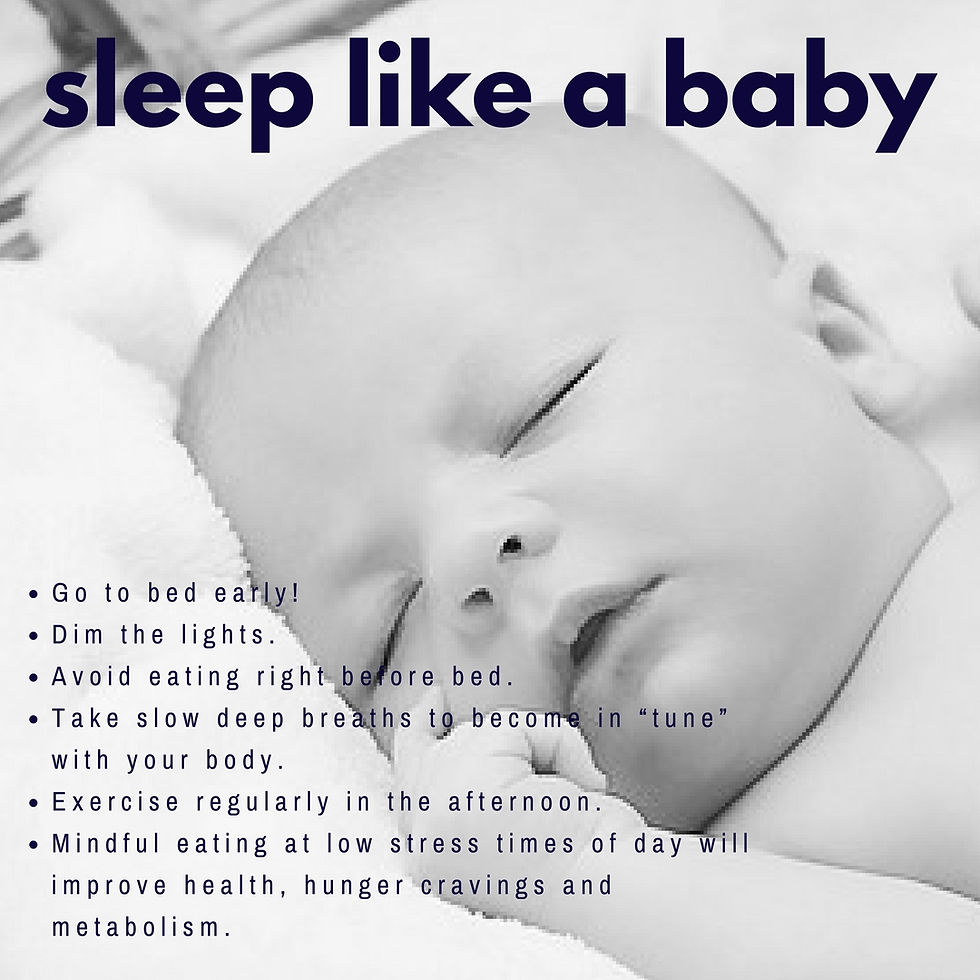Listening to Your Body Clock : Is there time for weight loss and exercise?
- Andrea Metcalf
- Nov 23, 2016
- 3 min read
Clients who exercise in the morning are more likely to sustain a program than those who do it at any other time of the day.

However, according to your body’s natural rhythms, the best time to exercise is in the late afternoon when stress hormones are lower.
Our bodies are in tune with the universe surrounding us. The more healthy and fit we become the more we are aware of these changes from our environment. Our body clock, what experts call the “circadian cycles” regulates our temperature, heart rate, blood pressure, and metabolic rate as well as hormone levels, appetite, and sleep. These “circadian cycles” release different hormones throughout the day and night.
Your body has more than 100 circadian cycles. Each unique 24-hour cycle influences an aspect of your body's function.
More people have heart attacks in the early morning when blood pressure is elevated than at any other time of the day.
More people feel hungry and sleepy around 3:00 pm than at any other time of day.
Many experts argue the best time for exercise is between 4pm and 7pm, but all agree on the best times for rest. Sleeping between 10pm and 6am is the optimal time of day for rest. During this time our bodies repair and restore tissues, organs and our mind.
Much of our circadian cycle is a response to light. Light, natural or artificial light causes an increase in the stress hormone, cortisol. Cortisol not only affects the immune function, but also bone metabolism, vascular tone and your cravings for sugar—your appetite.

Our peak time for cortisol response is in the early morning. Cortisol levels are increased with lack of sleep. Increased cortisol levels interfere with the breakdown of carbohydrates which may result in excess amounts of sugar in the body. Excess amounts of sugar encourages the overproduction of insulin which leads to the storage of excess body fat, as well as adult-onset diabetes.

Normal sleep cycles occur from 10:00pm to 6:00am. These eight hour sleep cycles will repair the body both physically and mentally. The early hours of sleep from 10pm through 2am repair the physical body: immune function, tissue repair and growth.
The 2:00am to 6:00am period help to repair the emotional and intellectual systems in the brain. Sleep cycles that run outside of the normal daylight/nighttime hours have a direct effect on body weight. According to Michael Thorpy, MD, director of the Sleep-Wake Disorders Center at Montefiore Medical Center in New York, "Sleep loss is associated with striking alterations in hormone levels that regulate the appetite and may be a contributing factor to obesity." And according to John Winkelman, MD, Ph.D., medical director of the Sleep Health Center at Brigham and Women's Hospital and assistant professor of psychiatry at Harvard Medical School, "Sleep loss disrupts a complex and interwoven series of metabolic and hormonal processes and may be a contributing factor to obesity.
What most people do not realize is that better sleep habits may be instrumental to the success of any weight management plan.” Utilize your own Circadian Cycles to the fullest! ♦ Go to bed early! Dim the lights. Avoid eating right before bed; have a good dinner with protein and complex carbohydrates. ♦ Take slow deep breaths to become in “tune” with your body. ♦ Exercise regularly in the afternoon. Not only is this the best time of day for your body but it will help you to keep away the afternoon hungries. ♦ Mindful eating at low stress times of day will improve health, hunger cravings and metabolism; eat within 30 minutes of waking up, noon and between 5:00pm and 7:00pm when stress hormones are lower.
































Comments